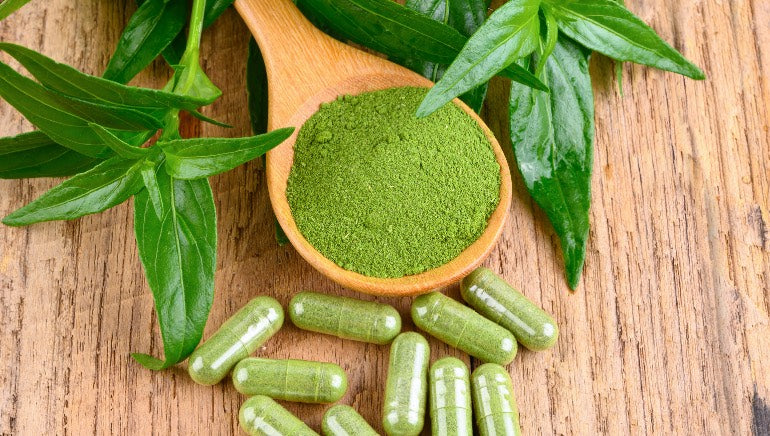Andrographis, a bitter-tasting plant native to South Asian countries, has been used in traditional medicine for centuries. Known as "Indian echinacea," it contains andrographolides, compounds with antioxidant, anti-inflammatory, and antiviral effects. Here are its key benefits:
-
Fights the Common Cold:
- Shortens the duration of cold symptoms and relieves respiratory issues.
-
Lowers Fever:
- Acts as a cold-property herb to combat heat, fever, and toxins.
-
Reduces Inflammation:
- Andrographolide, the main compound, significantly reduces inflammation caused by various factors.
-
Boosts Immunity and Fights Infections:
- Supports the immune system, fights infections, and possesses antibacterial and antiviral properties.
-
Works as an Antioxidant:
- Contains antioxidants that protect the body from oxidative damage.
-
May Have Anticancer and Anti-diabetic Effects:
- Shows potential anticancer effects and anti-diabetic potential in animal studies.
-
Potential Benefits for Other Health Issues:
- Studies suggest potential benefits for diarrhea, cardiovascular disease, high cholesterol, and renal disease.
Dosage:
- Various forms available, such as capsules, extracts, tinctures, and teas.
- Doses vary based on the specific health concern; consult a healthcare professional for guidance.
Risks and Side Effects:
- Not recommended for children, pregnant or nursing women.
- Caution for those with autoimmune diseases, bleeding disorders, or low blood pressure.
- Avoid if taking medications that slow blood clotting.
Conclusion:
- Andrographis has a rich history in traditional medicine.
- Used for respiratory issues, fever, digestion, diabetes, pain, inflammation, and cancer.
- Doses range from 1,200 milligrams to six grams per day, depending on health needs.
- Available in various forms, including tea, capsules, tinctures, and extracts.

